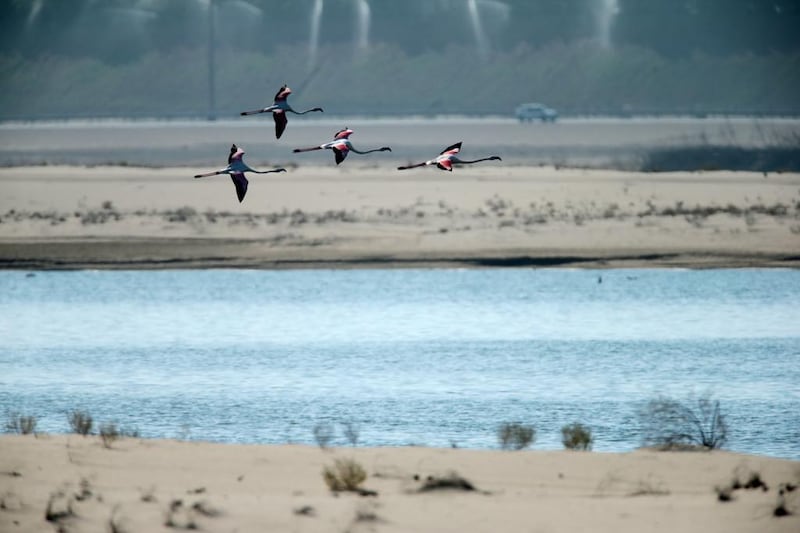It’s not just tourists who will be enjoying some winter sunshine during the coming months.
The country will host to thousands of feathered and furry friends, and more than a few with fins.
Now the UAE’s efforts in protecting migratory species have been awarded with two major conservation awards.
The Environment Agency Abu Dhabi was presented with the awards at the Conference of the Parties to the Convention on the Conservation of Migratory Species of Wild Animals in Manila, the Philippines this week.
As well as dozens of species of mammals, an estimated two to three million birds pass through the UAE every year, escaping the winter chill of central Asia for Africa and India.
Razan Khalifa Al Mubarak, the Secretary General of EAD, said: “Species conservation has been a priority for the United Arab Emirates government since the Union was formed.”
“Our marine habitats are home to the second largest population of dugongs in the world.
“These habitats are also home to the endangered hawksbill and green turtles, the world’s largest population of Indian Ocean humpback dolphins, four globally threatened species of shark, three threatened species of ray, and around 456 species of fish” she added.
_______________
Read more:
[ Abu Dhabi proves vital to growing population of greater flamingos ]
[ Call for coordinated effort among Gulf countries to save dugong ]
[ UAE signs up for migratory species convention ]
[ Great knot makes UAE stop on 13,000km journey ]
_______________
Nearly half of the 93 species of African-Eurasian birds of prey pass through the UAE when migrating. As well as dungongs and turtles, the seas around the country host dolphins, sharks and several species of whales.
The award of two Champion Plus awards comes just a year after the country joined the Convention on Migratory Species, adopting international standards for species conservation.
The EAD also acts on behalf of the Government of the United Arab Emirates in hosting a CMS Office in Abu Dhabi which is responsible for administering the organisation’s conservation efforts for both African-Eurasian raptors, and dugongs and seagrass habitats.
Ms Al Mubarak said: “We have long understood that what happens to migratory wildlife in other countries directly affects the UAE’s success in protecting species while they reside in, or pass through its territory.
“No matter how committed and well-resourced our country may be, long-term conservation of migratory animals can only be achieved by engaging with other countries through international cooperation and closely coordinating conservation activities across each species’ range.”






